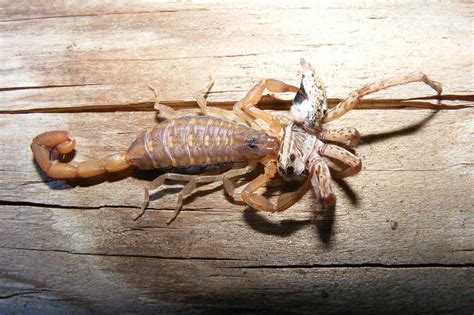The fascinating world of scorpions, those mysterious and often feared creatures that roam our planet's deserts, forests, and even backyards. While scorpions have a reputation for being formidable predators, they also have a softer side - their love for a good meal. In this article, we'll delve into the top 7 prey scorpions love to eat, exploring their hunting habits, favorite food sources, and the intricate relationships they have with their environment.
Understanding Scorpion Diets

Scorpions are carnivores, which means they primarily feed on other animals. Their diet consists of a variety of insects, arachnids, and even small vertebrates. The type of prey scorpions eat depends on the species, habitat, and availability of food sources. Some scorpions are specialized feeders, while others are opportunistic, eating whatever they can catch.
Top 7 Prey Scorpions Love to Eat
-
Crickets Scorpions have a special fondness for crickets, which are abundant in many environments. Crickets are a rich source of protein, and scorpions will often hunt them in large numbers.
-
Cockroaches Cockroaches are another favorite snack of scorpions. These insects are plentiful in many ecosystems and provide a reliable food source for scorpions.
-
Flies Flies are a common prey for scorpions, particularly those that inhabit forests and grasslands. Scorpions will often wait near fly habitats, such as near decaying matter or animal waste.
-
Beetles Beetles are a diverse group of insects that are also on the scorpion menu. Some scorpions specialize in hunting specific types of beetles, while others will eat whatever they can catch.
-
Spiders Scorpions will occasionally eat spiders, particularly those that are smaller or weaker. This may seem surprising, given that spiders and scorpions are both predators, but in the animal kingdom, it's every creature for themselves.
-
Centipedes Centipedes are another arthropod that scorpions enjoy snacking on. These long, slender creatures are often found in dark, moist environments, where scorpions will hunt them.
-
Small Lizards Some larger scorpion species will eat small lizards, such as geckos or anoles. These reptiles are often slower-moving and more vulnerable to scorpion attacks.
Hunting Strategies of Scorpions

Scorpions have evolved various hunting strategies to catch their prey. Some species use stealth and ambush tactics, while others are more active hunters. Here are a few examples:
- Ambush: Some scorpions will wait in a hidden location, such as under a rock or in a burrow, and then strike when unsuspecting prey wanders by.
- Active hunting: Larger scorpions will actively search for prey, using their sensitive eyes and pedipalps (appendages that resemble small claws) to detect and capture insects.
- Stalking: Some scorpions will stalk their prey over short distances, using their powerful legs to pursue and capture insects.
Scorpion Hunting Habits

Scorpions have several adaptations that make them effective hunters:
- Night vision: Many scorpions have excellent night vision, thanks to their sensitive eyes that can detect even small amounts of light.
- Sensitive pedipalps: Scorpions use their pedipalps to detect vibrations and movement, helping them locate prey in the dark.
- Powerful venom: Scorpions have a potent venom that they use to immobilize their prey, making it easier to eat.
Gallery of Scorpions and Their Prey






Conclusion
In conclusion, scorpions are fascinating creatures that have evolved complex hunting strategies to capture their prey. From crickets to small lizards, scorpions have a diverse diet that reflects their adaptability and survival instincts. By understanding scorpion behavior and ecology, we can gain a deeper appreciation for these often-misunderstood animals.
Share Your Thoughts
What do you think is the most interesting aspect of scorpion behavior? Have you ever encountered a scorpion in the wild? Share your experiences and thoughts in the comments below!
What is the average lifespan of a scorpion?
+The average lifespan of a scorpion varies depending on the species, but most scorpions live between 2-5 years in the wild.
Are all scorpions venomous?
+No, not all scorpions are venomous. While most scorpions have venom, some species have very mild venom or no venom at all.
Can scorpions see?
+Scorpions have poor eyesight, but they are sensitive to light and can detect movement and vibrations.
